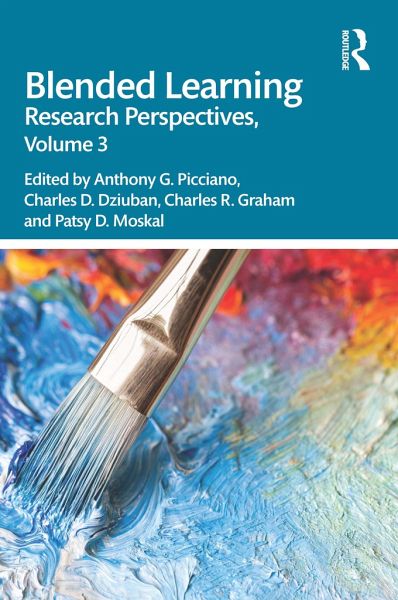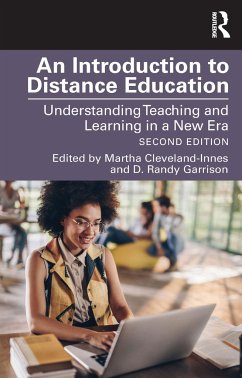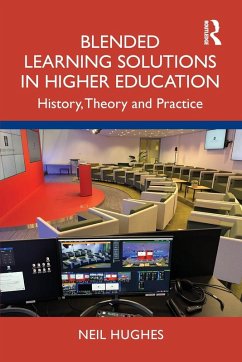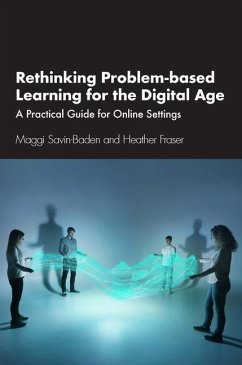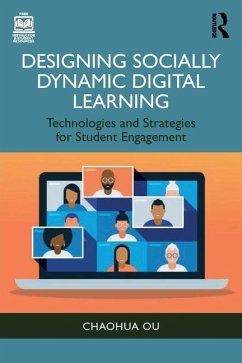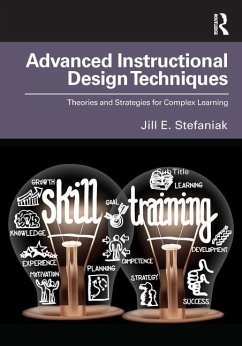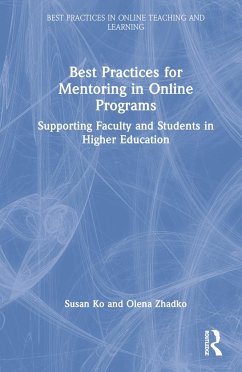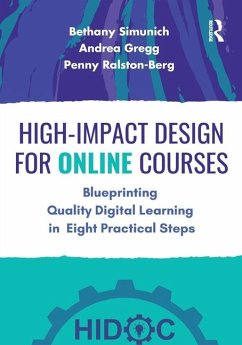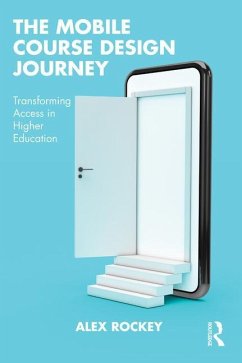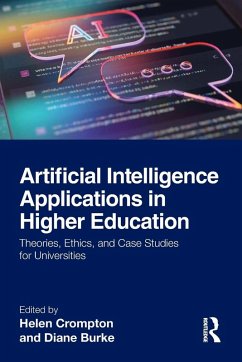"If you missed Volumes 1 and 2, you're in luck, since Volume 3 has arrived exactly when educators around the world are adopting a cacophony of blended learning approaches, activities, and analyses."
-Curtis J. Bonk, Professor of Instructional Systems Technology in the School of Education at University of Indiana, USA
"Blended Learning: Research Perspectives, Volume 3 promises to set the standard for blended learning research. This is critical reading to advance research and practice of blended learning across educational sectors."
-Peter Shea, Associate Provost for Online Learning and Professor in the School of Education at University at Albany, USA, and Editor of Online Learning
Journal
"This volume, like its two predecessors, is a rich buffet of research reports and insights. But the last entrée is a dessert not to be missed, a concluding chapter that ties together many diverse strands as it speculates about the future."
-George L. Mehaffy, Senior Advisor at Sova
"This book is a culmination of decades of hard work to improve student learning through extensive research and practical application. Its authors are the leading researchers in online and blended learning."
-Jeffrey S. Russell, Vice Provost of Lifelong Learning and Dean of Continuing Studies at University of Wisconsin-Madison, USA
"Whether you are an academic researcher, an instructor, a technology developer, a learning sciences expert, or an administrator, this book is for you. It provides a wide array of broad and deep insights into the complex subject of blended learning."
-Manoj Kulkarni, CEO of Realizeit
"Central to this work is the importance of student outcomes, faculty engagement, and the appropriate use of technology to support student learning by providing relevant and important that can serve as a guide for educators and their students."
-Connie Johnson, Chief Academic Officer/Provost at Colorado Technical University, USA
"This third volume is most welcome and timely. Considering our collective recent experience, blended learning is here to stay, making research into best practices in this area essential to all those involved in post-secondary teaching and learning."
-Malcolm Brown, Consultant for the Horizon Report
"This collection gives details that are most significant and promising, with a conclusion pondering what lies ahead, not just for learning, but all the paths before us, informing our choices and futures. A must-read."
-George Otte, Senior Associate Dean of Academic Affairs at the CUNY School of Professional Studies, USA
"The first two volumes of
Blended Learning: Research Perspectives were crucial roadmaps to the future of teaching and learning. This third volume is a beacon of light cutting through the COVID-19 clouds to show us the way forward once again."
-Dale P. Johnson, Director of Digital Innovation in the University Design Institute at Arizona State University, USA
"A timely and valuable contribution to an increasingly important area by some of the most thorough academic researchers working on blended learning."
-Glenda Morgan, Research Director in Gartner Research
"This is an important work at a critical time in education, providing research for how to make the most effective use of the digital tools that have suddenly become ubiquitous."
-
Thomas Cavanagh, Vice Provost for Digital Learning at University of Central Florida, USA
"This book is a splendid addition to this series. It demonstrates the advancement of the field in the range of methodological approaches to enhance our knowledge of blended learning. "
-Tanya Joosten, Senior Scientist and Director of Digital Learning Research and Development, Academic Affairs, at University of Wisconsin-Milwaukee, USA
"Comprehensive in its coverage, bracing and eclectic in its approach, the third volume of
Blended Learning: Research Perspectives empowers the most important learning outcome of all: wisdom."
-Gardner Campbell, Associate Professor of English at Virginia Commonwealth University, USA
"Volume 3 in this series on blended learning both complements and extends the previous contributions and is essential reading for educators who teach, design, evaluate, and research in contemporary educational environments".
-Gavin Sanderson, SFHEA, Program Director of the Graduate Diploma in Education Studies (Digital Learning) at University of South Australia, Australia
"The third volume of
Blended Learning: Research Perspectives provides a broad depth of knowledge on which to build the core foundation for blended instruction."
-Mary P. Niemiec, Associate Vice President for Digital Education and Director of University of Nebraska Online at University of Nebraska, USA
"The variety of topics covered in this book accurately mirrors the complexity facing education. Highly valuable reading for all involved in education."
-Maria Zajac, Editor-in-Chief of
E-Mentor and Certified Instructional Designer at SGH Warsaw School of Economics, Poland
"This excellent book, third in a series, captures leading research and practices in the field today, and features a peek into future scenarios. It is a must-read for those wishing to participate in blended education models that ensure quality education."
-Frank Mayadas, Program Director of the Alfred P. Sloan Foundation and Founding President of the Online Learning Consortium
"The third volume of this book is another welcome read for researchers and practitioners trying to sort through the complexity of choice for technologies and pedagogies that support digital and blended learning."
-Karen Vignare, Vice President of Digital Transformation for Student Success and Executive Director of the Personalized Learning Consortium for the Association of Public & Land-Grant Universities
"It's easy to opine about blended learning's usefulness, but much harder to demonstrate it. The authors have done just that, collecting the evidence and presenting it elegantly. You simply must read this book."
-Susan Grajek, Vice President for Partnerships, Communities, and Research at EDUCAUSE
"The third volume of
Blended Learning: Research Perspectives provides a timely resource for both new and experienced blended learning practitioners and continues in the tradition of the first two volumes."
-John Kane, Professor of Economics and Director of Center for Excellence in Learning and Teaching at State University of New York at Oswego, USA
